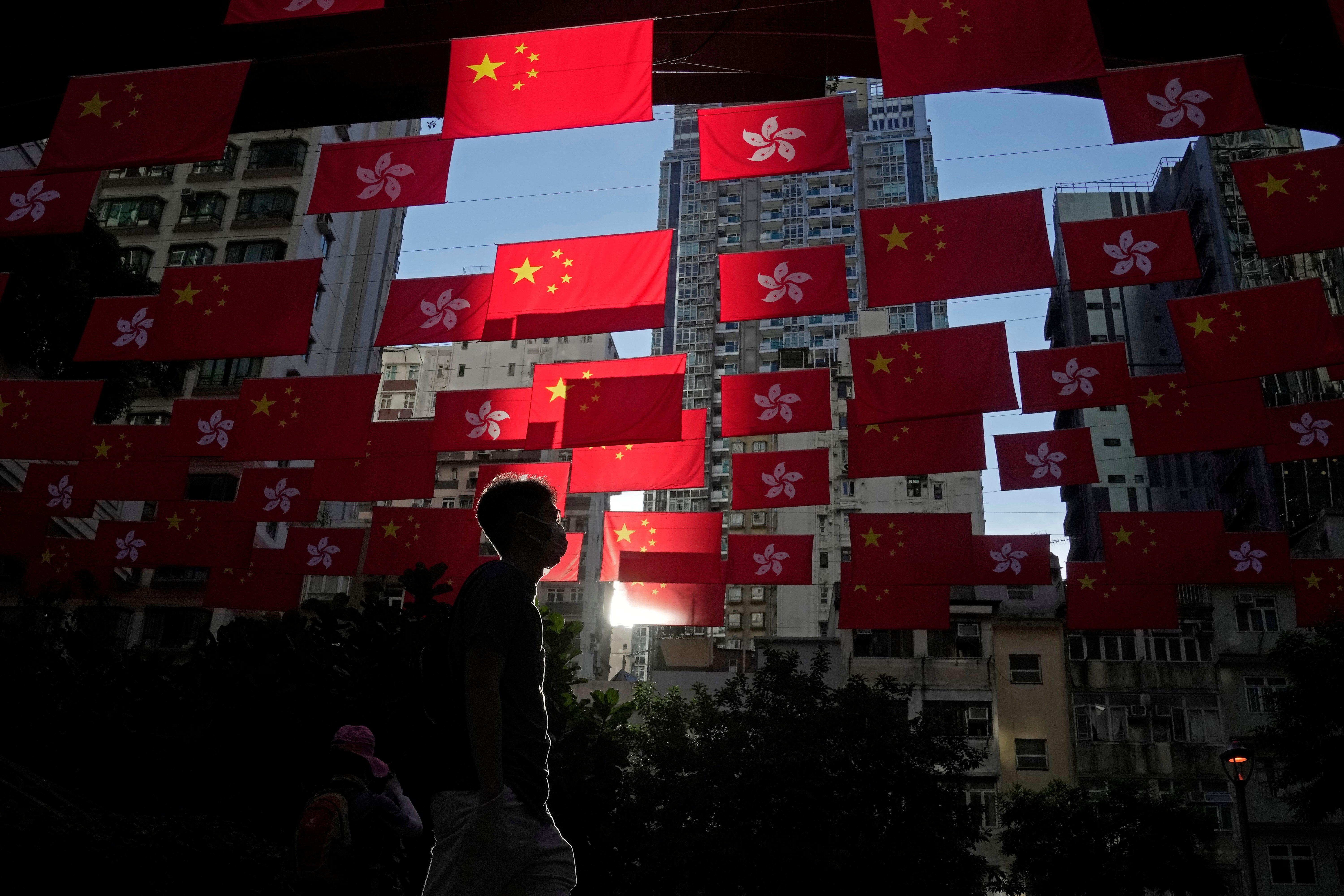WTO rejects US 'Made in China' labeling on Hong Kong goods
World Trade Organization arbitrators have concluded the United States violated its rules in requiring that products from Hong Kong be labeled as “Made in China.”

Your support helps us to tell the story
From reproductive rights to climate change to Big Tech, The Independent is on the ground when the story is developing. Whether it's investigating the financials of Elon Musk's pro-Trump PAC or producing our latest documentary, 'The A Word', which shines a light on the American women fighting for reproductive rights, we know how important it is to parse out the facts from the messaging.
At such a critical moment in US history, we need reporters on the ground. Your donation allows us to keep sending journalists to speak to both sides of the story.
The Independent is trusted by Americans across the entire political spectrum. And unlike many other quality news outlets, we choose not to lock Americans out of our reporting and analysis with paywalls. We believe quality journalism should be available to everyone, paid for by those who can afford it.
Your support makes all the difference.World Trade Organization arbitrators concluded Wednesday that the United States was out of line in requiring that products from Hong Kong be labeled as “Made in China,” a move that was part of Washington's response to a crackdown on pro-democracy protests there in 2019-2020.
A WTO dispute panel found the U.S. violated its obligations under the trade body's rules and rejected Washington's argument that U.S. “essential security interests” allowed for such labeling. The panel said the situation did not pose an “emergency” that would justify such an exemption under the trade body’s rules.
The United States or Hong Kong could appeal the ruling to the WTO’s appeals court. However, the Appellate Body is currently inactive because the U.S. has almost single-handedly held up appointments of new members to the court amid concerns it had exceeded its mandate. So any such appeal would go into an arbitration void and remain unsettled.
The United States Trade Representative’s office indicated it would ignore Wednesday’s ruling anyway.
“The United States does not intend to remove the marking requirement as a result of this report, and we will not cede our judgment or decision-making over essential security matters to the WTO,” USTR spokesperson Adam Hodge said in a statement.
Hong Kong, a former British colony, is one of China’s special administrative regions and is considered a separate trading entity from China.
At a press briefing Thursday, Hong Kong’s commerce minister Algernon Yau said he had written to the USTR urging the U.S. to drop the label requirement.
The U.S. market only accounts for about 0.1% of Hong Kong's exports, but the requirement has caused “unnecessary concern” for manufacturers, he said.
“Even though the financial implication is minimal, it caused a lot of confusion to the customers regarding ‘Made in Hong Kong’ or ‘Made in China,'" he said.
Three decades ago, the U.S. Congress passed a law allowing products from Hong Kong to benefit from a trading status different from China's, and potentially lower tariffs, if it remained sufficiently autonomous. By marking products as “Made in China,” the U.S. can ratchet up the tariffs it levies on goods from Hong Kong.
Mass protests persisted for months in Hong Kong in 2019-2020. They abated after Beijing imposed a National Security Law, using it to silence or jail many pro-democracy activists.
In July 2020, then-U.S. President Donald Trump issued an executive order saying that Hong Kong was “no longer sufficiently autonomous to justify differential treatment in relation to the People’s Republic of China.”
———
Associated Press writer Kanis Leung in Hong Kong contributed to this report.